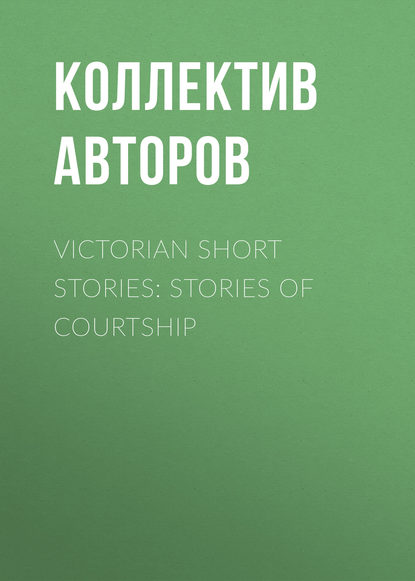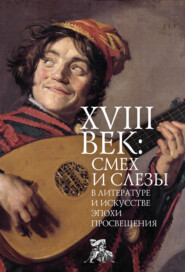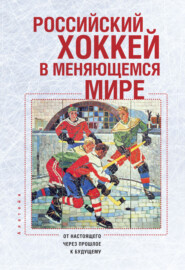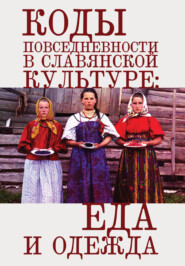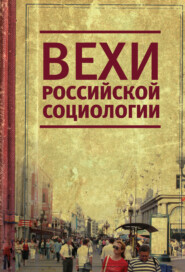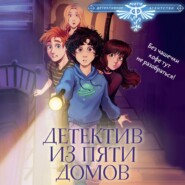По всем вопросам обращайтесь на: info@litportal.ru
(©) 2003-2024.
✖
Victorian Short Stories: Stories of Courtship
Настройки чтения
Размер шрифта
Высота строк
Поля
She heard him draw a long breath.
'I said 't was a turn o' Providence, meetin' wi' ye oop here,' he exclaimed, with half-suppressed exultation.
Her teeth began to chatter a little: she felt that he was peering at her, curiously, through the darkness.
'An' noo,' he continued briskly, 'ye'd best be gettin' home. Give me ye're hand, an' I'll stiddy ye ower t' stones.'
He helped her down the bank of shingle, exclaiming: 'By goom, ye're stony cauld.' Once or twice she slipped: he supported her, roughly gripping her knuckles. The stones rolled down the steps, noisily, disappearing into the night.
Presently they struck the turf bridle-path, and, as they descended silently towards the lights of the village, he said gravely:
'I always reckoned what my day 'ud coom.'
She made no reply; and he added grimly:
'There'll be terrible work wi' mother over this.'
He accompanied her down the narrow lane that led past her uncle's house. When the lighted windows came in sight he halted.
'Good night, lassie,' he said kindly. 'Do ye give ower distressin' yeself.'
'Good night, Mr. Garstin,' she answered, in the same low, rapid voice in which she had given him her answer up on the fell.
'We're man an' wife plighted now, are we not?' he blurted timidly.
She held her face to his, and he kissed her on the cheek, clumsily.
VI
The next morning the frost had set in. The sky was still clear and glittering: the whitened fields sparkled in the chilly sunlight: here and there, on high, distant peaks, gleamed dainty caps of snow. All the week Anthony was to be busy at the fell-foot, wall-building against the coming of the winter storms: the work was heavy, for he was single-handed, and the stone had to be fetched from off the fell-side. Two or three times a day he led his rickety, lumbering cart along the lane that passed the vicarage gate, pausing on each journey to glance furtively up at the windows. But he saw no sign of Rosa Blencarn; and, indeed, he felt no longing to see her: he was grimly exultant over the remembrance of his wooing of her, and over the knowledge that she was his. There glowed within him a stolid pride in himself: he thought of the others who had courted her, and the means by which he had won her seemed to him a fine stroke of cleverness.
And so he refrained from any mention of the matter; relishing, as he worked, all alone, the days through, the consciousness of his secret triumph, and anticipating, with inward chucklings, the discomforted cackle of his mother's female friends. He foresaw without misgiving, her bitter opposition: he felt himself strong; and his heart warmed towards the girl. And when, at intervals, the brusque realization that, after all, he was to possess her swept over him, he gripped the stones, and swung them almost fiercely into their places.
All around him the white, empty fields seemed slumbering breathlessly. The stillness stiffened the leafless trees. The frosty air flicked his blood: singing vigorously to himself he worked with a stubborn, unflagging resolution, methodically postponing, till the length of the wall should be completed, the announcement of his betrothal.
After his reticent, solitary fashion, he was very happy, reviewing his future prospects, with a plain and steady assurance, and, as the week-end approached, coming to ignore the irregularity of the whole business: almost to assume, in the exaltation of his pride, that he had won her honestly; and to discard, stolidly, all thought of Luke Stock, of his relations with her, of the coming child that was to pass for his own.
And there were moments too, when, as he sauntered homewards through the dusk at the end of his day's work, his heart grew full to overflowing of a rugged, superstitious gratitude towards God in Heaven who had granted his desires.
About three o'clock on the Saturday afternoon he finished the length of wall. He went home, washed, shaved, put on his Sunday coat; and, avoiding the kitchen, where his mother sat knitting by the fireside, strode up to the vicarage.
It was Rosa who opened the door to him. On recognizing him she started, and he followed her into the dining-room. He seated himself, and began, brusquely:
'I've coom, Miss Rosa, t' speak t' Mr. Blencarn.'
Then added, eyeing her closely:
'Ye're lookin' sick, lass.'
Her faint smile accentuated the worn, white look on her face.
'I reckon ye've been frettin' yeself,' he continued gently, 'leein' awake o' nights, hev'n't yee, noo?'
She smiled vaguely.
'Well, but ye see I've coom t' settle t' whole business for ye. Ye thought mabbe that I was na a man o' my word.'
'No, no, not that,' she protested, 'but—but—'
'But what then?'
'Ye must not do it, Mr. Garstin … I must just bear my own trouble the best I can—' she broke out.
'D'ye fancy I'm takin' ye oot of charity? Ye little reckon the sort o' stuff my love for ye's made of. Nay, Miss Rosa, but ye canna draw back noo.'
'But ye cannot do it, Mr. Garstin. Ye know your mother will na have me at Hootsey…. I could na live there with your mother…. I'd sooner bear my trouble alone, as best I can…. She's that stern is Mrs. Garstin. I couldn't look her in the face…. I can go away somewhere…. I could keep it all from uncle.'
Her colour came and went: she stood before him, looking away from him, dully, out of the window.
'I intend ye t' coom t' Hootsey. I'm na lad: I reckon I can choose my own wife. Mother'll hev ye at t' farm, right enough: ye need na distress yeself on that point—'
'Nay, Mr. Garstin, but indeed she will not, never… I know she will not… She always set herself against me, right from the first.'
'Ay, but that was different. T' case is all changed noo,' he objected doggedly.
'She'll support the sight of me all the less,' the girl faltered.
'Mother'll hev ye at Hootsey—receive ye willin' of her own free wish—of her own free wish, d'ye hear? I'll answer for that.'
He struck the table with his fist heavily. His tone of determination awed her: she glanced at him hurriedly, struggling with her irresolution.
'I knaw hoo t' manage mother. An' now,' he concluded, changing his tone, 'is yer uncle about t' place?'
'He's up the paddock, I think,' she answered.
'Well, I'll jest step oop and hev a word wi' him.'
'Ye're … ye will na tell him.'
'Tut, tut, na harrowin' tales, ye need na fear, lass. I reckon ef I can tackle mother, I can accommodate myself t' parson Blencarn.'
He rose, and coming close to her, scanned her face.
'Ye must git t' roses back t' yer cheeks,' he exclaimed, with a short laugh, 'I canna be takin' a ghost t' church.'
She smiled tremulously, and he continued, laying one hand affectionately on her shoulder:
'Nay, but I was but jestin'. Roses or na roses, ye'll be t' bonniest bride in all Coomberland. I'll meet ye in Hullam lane, after church time, tomorrow,' he added, moving towards the door.





